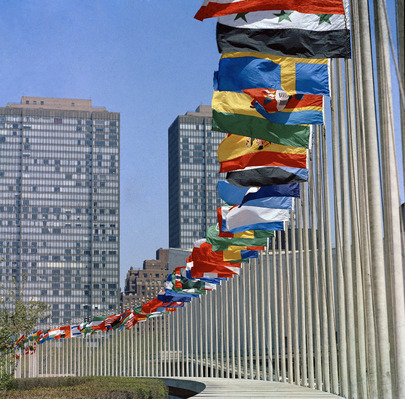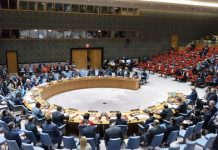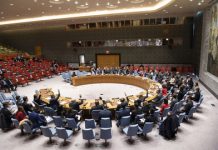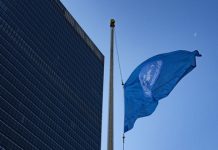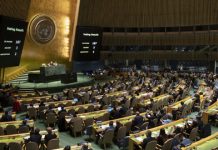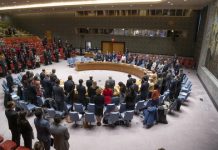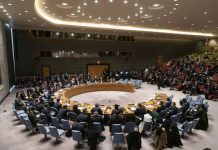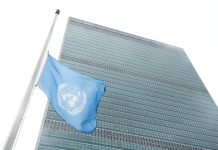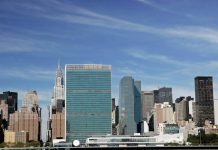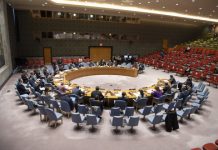Haiti gangs crisis: top rights expert decries attacks on hospitals
The UN’s top expert on human rights in Haiti has condemned “intentional” attacks on hospitals, clinics and heathcare workers by gangs there, warning that medical facilities were already “near collapse”.
William O’Neill, who reports to the UN High Commissioner for Human Rights, highlighted an attack on the Bernard Mevs Hospital in Port-au-Prince on 17 December and the killing of several journalists and a police officer at the General Hospital on 24 December. The victims were attending the hospital’s official reopening.
“Criminal gangs have murdered and kidnapped physicians, nurses and healthcare workers, including humanitarian workers,” Mr. O’Neill said in a statement, adding that gangs had “burned, ransacked and destroyed many hospitals and clinics, forcing many to close or suspend their operations”.
According to the rights expert, only 37 per cent of health facilities in Port-au-Prince are fully functional. They remain difficult to access because of unchecked gangland violence in the capital that has put at risk the Haitian people and “hundreds of thousands of children living in very precarious conditions”, Mr. O’Neill stressed.
He underscored “repeated threats to attack health premises” and cited reports that police officers were also allegedly involved.
Syria: UNICEF teams protect thousands from cholera at Al Hol, Roj detention camps
To northeast Syria, where UN teams have pressed ahead with a lifesaving cholera vaccine campaign in the notorious Al Hol detention camp complex.
The campaign is happening despite ongoing security concerns and uncertainty in the wartorn country, following the overthrow of the Assad regime.
Cholera was detected in the camp and confirmed by laboratory tests in early October. Because Al Hol lacks a specialist treatment centre for acute watery diarrhoea, it is crucial that people are vaccinated there as quickly as possible.
UNICEF health and nutrition officer Khourchid Hasan told UN News that the agency successfully transported 25,000 doses of vaccine via northwest Syria to make the campaign possible:
“For the first time we received the vaccine of cholera from northwest Syria to the northeast to vaccinate people in Al Hol camp, even (despite) the escalation and security situation in the country, but we managed to access to the people and get them with the vaccine. Now we are vaccinating people in Al Hol camp and the campaign is ongoing even during the season’s holidays and the vaccination teams are doing a great job there to give this lifesaving as treatment to children and their caregivers in Al Hol camp.”
Teams of vaccinators work by going through the camp with a loudhailer urging families and their children to come and receive their dose.
Cholera was detected for the first time in Syria in 2022 but the camp escaped infection. The current outbreak comes amid funding shortfalls, poor nutrition, dirty water and bad sanitation, UNICEF said.
Gaza: Israeli authorities face renewed appeal to let in lifesaving supplies
To Gaza, where the UN migration agency, IOM, issued an urgent appeal to the Israeli authorities to allow lifesaving aid relief into the enclave, to prevent further death and suffering as temperatures plummet.
IOM Director-General Amy Pope said that at least seven infants have died from hypothermia, underscoring the need for shelter and other assistance to the people of Gaza immediately.
UN humanitarians have warned that heavy rains and flooding have overwhelmed displacement sites and makeshift shelters in Gaza.
Families are exposed to harsh conditions and struggle to repair worn-out tents.
With more, here’s IOM spokesperson Kennedy Omondi:
“The humanitarian crisis in Gaza is worsening as winter rains and freezing temperatures claim more lives, including newborns. Displaced families are struggling in makeshift shelters. Nearly 1,000,000 people urgently need winter aid. We, as IOM, have supplies ready near Gaza’s entry points, but severe access restrictions are preventing delivery. We need a humanitarian ceasefire and for all parties to protect civilians and allow unimpeded humanitarian access.”
According to the UN aid coordination office, OCHA, systematic access constraints have meant that only 285,000 people received shelter support since September last year.
It’s estimated that at least 945,000 still urgently need winterization assistance, such as thermal clothing, blankets and tarpaulins to keep out the rain and cold.
IOM has delivered nearly 180,000 emergency shelter items to partners inside Gaza since mid-November and has over 1.5 million more winter kits ready at warehouses and entry points, but it says that “severe access restrictions” continue to prevent teams from reaching those in need.
Daniel Johnson, UN News
Music composed and produced by Joachim Harris. All rights reserved
Source of original article: United Nations (news.un.org). Photo credit: UN. The content of this article does not necessarily reflect the views or opinion of Global Diaspora News (www.globaldiasporanews.com).
To submit your press release: (https://www.globaldiasporanews.com/pr).
To advertise on Global Diaspora News: (www.globaldiasporanews.com/ads).
Sign up to Global Diaspora News newsletter (https://www.globaldiasporanews.com/newsletter/) to start receiving updates and opportunities directly in your email inbox for free.


